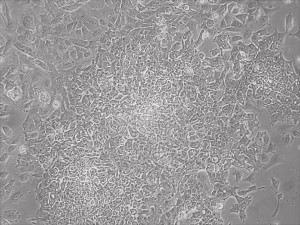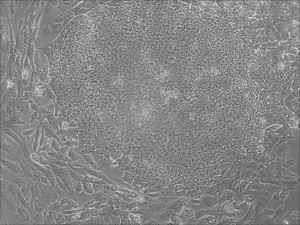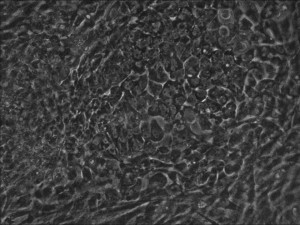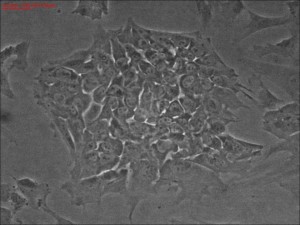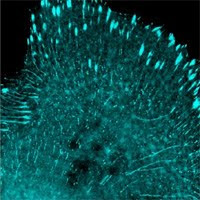Previously
scientists at Allele Biotech have reported near uniform conversion of
human fibroblasts using our proprietary mRNA mixtures. The first
picture below shows a well of cells after 7 days of growing fibroblasts
with the new Allele mRNA mix.
This
month, by adjusting the mRNA dose while testing Allele’s own
reprogramming medium formulation, we observed various stages of cells
going through the transition in the same well (see pictures 2 to 5).
All stages of reprogramming typically observed over a span of weeks can
actually be seen within 1 well of a 6-well plate when we treated human
fibroblasts at half the dose of our standard mRNA mix, on day 10, and
using Allele Biotech’s new formulation of reprogramming medium.
(1) Warren, Ni, Wang, and Guo 2012 (pdf download)

Previous bulk conversion on Day 7 of reprogramming at full dose mRNA, improved upon our published efficiency (1)
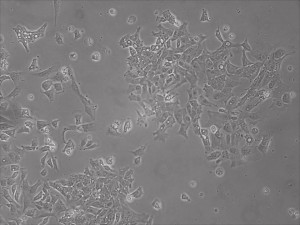
Reprogramming
en masse: post mesenchymal-to-epithelial (MET) transition cells start
to become iPSCs without surrounding fibroblasts (as opposed to the above
figure)

